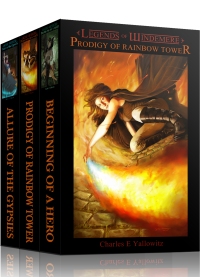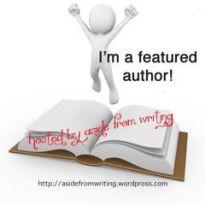
Main villain? Not even close.
So, I’ve been thinking a lot about villains and what makes one popular while others are laughed at. The answer I came up with is that it really depends on the individual since most villains have fans. Sure, we live in a world where it’s more important to tear down what you dislike than build up what you do, but I’ve seen every bad guy have some level of popularity. This makes it difficult to give a general answer, so I’m just going to say what I look for in a reader/viewer and try to do as a writer.
As a Reader/Viewer
I like villains to be dangerous and a challenge for the heroes in some way. They don’t have to be physically overpowering, but they have to have an aspect that makes them a danger to others. For example, Lex Luthor isn’t as strong as Superman, but he’s smart and charismatic enough to be one of his deadliest enemies. I need to feel like I’m looking at a guy who could win if the hero makes a mistake. Now, I’ll admit this isn’t always the case if the villain is entertaining to watch. Yet, I really do need some sense of weight and risk when he/she interacts with the heroes.
Much of the weight in my mind stems from the villain’s motivation as well. This one is hard to explain, but I prefer bad guys who have a plan that doesn’t really boil down to ‘I like being evil’. Now, there are villains like that because their personality is that of a psychotic, but I give them a pass because they are written that way. It’s the ones that act like they’re a higher class of antagonist when it really comes off with them being driven by the desire to kill, destroy, and steal. Just fess up to that if that’s what you’re supposed to be. Sadly, I see more of these bad guys turning up lately. Maybe I’ve become more nitpicky though. It’s just that if I can hear a bad guy’s plan and immediately think ‘well, why don’t you just do this instead since it brings you your goals without being a villain?’ I mean, doing evil things in the name of helping others tends to work off a twisted sense of morality, but that can be easily undone if there’s a clear and obvious path that even the twisted can see.
As a Writer
I try to make a variety of villains, which can range from ‘benevolent’ conquerors like Baron Kernaghan, sniveling servants like the Lich, and unwilling antagonists like Queen Trinity. This connects to me going primarily for ensemble stories, so you have a team of heroes against a team of villains. This requires that I have multiple personalities, goals, and methods within the same group. I’ve found that doing this with a band of immoral bastards doesn’t really work because then you have the backstabbing issue. Why would villains who have no morals and wish to be the main antagonist work together for an entire story? I think we’ve come to expect villains to turn on each other too, so I try to minimize the use of that story point.
As strange as it is, one of the most important things I try to do for my villains is giving them a human aspect. This can be positive or negative, but it helps create a bridge with the reader. I think we can enjoy bad guys more if they have depth and desires similar to our own. Sure, it might be a darker version of our own beliefs, but that can make us feel like we’d be the same if we took the wrong path. Having even the evilest of villain develop a speck of sympathy from the readers can do wonders for him/her because it means they’re more than the final obstacle. Look at Darth Vader who spent the first two movies as a really evil character, but then did one thing in the finale to gain a little redemption from the audience. This is an extreme example though because not every villain deserves redemption. Most villains should really stay there even if there are some aspects of their personality that are positive. Then, you have characters like Stephen Kernaghan who are totally irredeemable.
So, what does everyone else look for in a villain or do to create one for their own stories?





You always make your villains work overtime and they have such depth of character that your characterizations show through.
LikeLike
Thanks. It’s one of the harder parts because I want to make them human, but not so much that one wonders why they’re villains. You still need some level of evil even if you plan on a redemption arc down the road.
LikeLiked by 1 person
You are the best.
LikeLike
I like to create comedy villains for my children’s stories. I make them scary and deadly dangerous, of course, but they tend to have a ridiculous aspect as well.
LikeLike
I’ve noticed that comedy villains seem to work best for children’s stories. The shows my son watches do this a lot.
LikeLike
I have to have empathy with the villain. There’s a reason he/she became the way they are and though the evil they undertake is obviously wrong, in a weird way I sympathize with them. I try to do the same with my villains. As they say, everyone is the hero of their own story 🙂
LikeLike
I agree, but I’ll admit that it is tough to balance the empathy. If a reader connects more with the villain than the hero then you can run into a problem. So, is there a way to have enough empathy to bring understanding without making it hard to believe they are the villain?
LikeLiked by 1 person
In some of the better thrillers I’ve read (Loreth Anne White, for one) they bring out the contemptible actions of the villain before acquainting the reader with his/her past and why they turned to crime. It’s not an excuse, but it does help us to understand the factors that changed their lives and maybe gain that empathy.
LikeLike
Great treatise on villains. Wish I had something to add, but this doesn’t seem to need much more.
LikeLike
Thanks. Glad to see it covers a lot. It was all off the top of my head.
LikeLiked by 1 person
Sometimes those are the best posts.
LikeLike
Reblogged this on DSM Publications and commented:
Check out this great post from Charles Yallowitz on what makes a good villain
LikeLike
Thanks. 🙂
LikeLiked by 1 person
You’re welcome.
LikeLike
I missed this the other day! (Really busy the other day.) Great post. I prefer villains with humanity as you mentioned. They’re three-dimensional, rather than standard-issue mustache-twirlers. Though I don’t mind some mustache twirling in henchmen.
LikeLike
Henchmen definitely get a lot more traction. You can go wild with those characters.
LikeLike
I agree with you that villains need to have some motivation beyond “I want what I want and will squash anyone who gets in my way.” For me, the best ones do serve a higher cause but take steps that shouldn’t be taken.
Magneto is a great example, I think. He does evil things to further the cause of mutant rights. He strikes on behalf of his people. There’s been some shift over the years, between wanting mutants to take over the world because their powers make them more fit to rule, and in later years just wanting to safeguard mutants from persecution. I think his drive for mutant rights made him rise above the crowd of bank robbers with some sort of crazy power.
LikeLike
I always loved how Magneto could shift from hero to villain while keeping his goals. He made a great foil to Xavier since they both wanted to protect mutant-kind, but only disagreed on the tactics. Maybe a good way to do an arch-enemy is to make them mirrors to each other.
LikeLiked by 1 person
It also gives hero and villain the opportunity to find common cause on certain issues, but it wouldn’t be an easy or long lasting partnership.
LikeLike